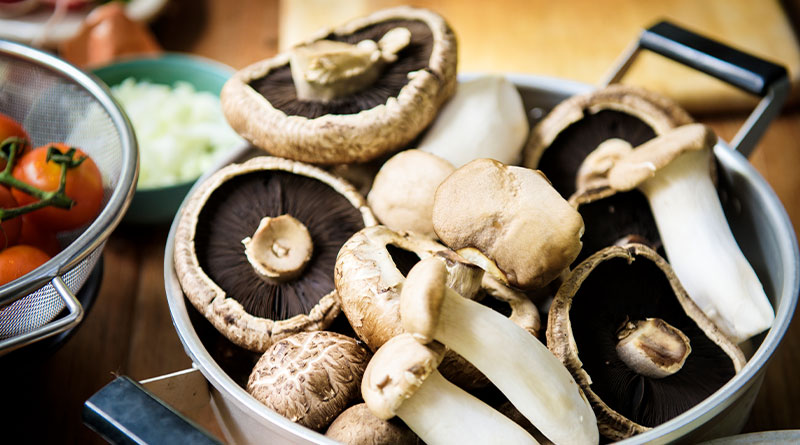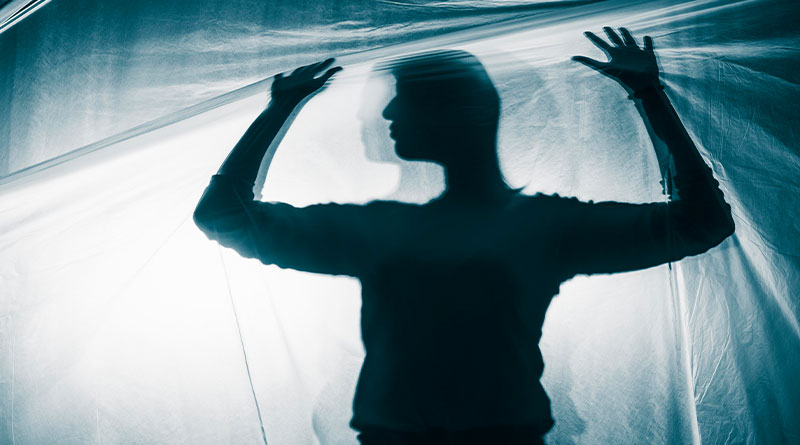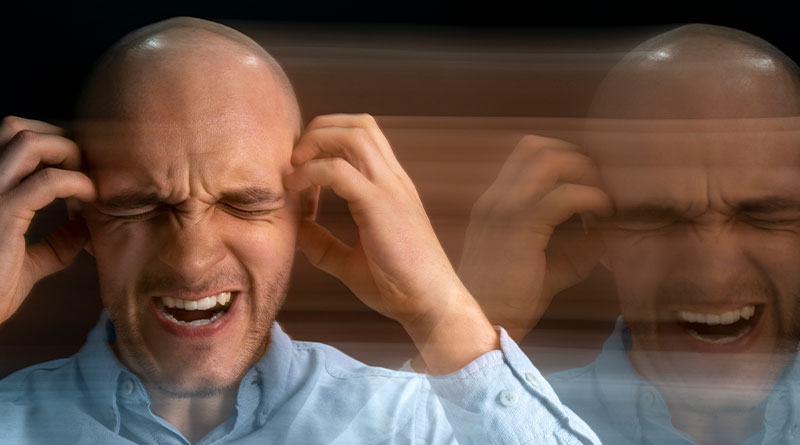A new study reveals that the hallucinogenic compound present in magic mushrooms (or shrooms) can alleviate symptoms of major depressive illness.
Psilocybin has therapeutic promise, and this study supports that, especially for treating depression that has not responded to conventional medications.
JAMA Psychiatry released the study on November 4.
This work contributes to our understanding of the relationship between psychedelics and mental health and provides a potentially effective new method of treating severe depressive illness.
Twenty-four participants finished the study, during which they were given two doses of psilocybin and psychotherapy for support.
Researchers at Johns Hopkins Medicine stated that over two-thirds of participants responded positively to treatment for their depression.
Over half of the subjects satisfied the threshold for remission from depression four weeks after receiving psilocybin medication. Keep on reading to know about the role of Mushrooms for depression.
What Is The Role Of Mushrooms For Depression?
Neuroscientists have linked depression to a breakdown in communication between different brain parts. A healthy brain can talk to itself and switch between other networks. However, a sad person’s mind is closed off, detached, and unyielding.
Depressed people often have trouble with neural networks essential for concentration, analysis, and pursuing goals. These networks are weakly active and have limited interplay in the depressed brain. Similarly, self-reflective and reflective processes are operating at an elevated rate.
Because of this, the depressed person’s mind can’t break the cycle of feeling bad about themselves. People who suffer from depression, in other words, find themselves in an impenetrable rut.
Interneural Rewiring
Have you ever imagined what it might feel like to hit the refresh button? Psilocybin may be the closest thing to our “reset” button. The psilocybin in mushrooms is the primary ingredient that helps with depression.
Psilocybin is rapidly metabolized in the stomach into the active metabolite psilocin.
Psilocin dissolves in fat and can enter the brain. Psilocin’s structure is similar to serotonin, the “feel good” hormone. Binding to serotonin receptors in the brain sets off a series of complicated reactions.
This shift is what scientists refer to as a “neuronal avalanche.” First, psilocin stops the negative thought-circling default mode network. This facilitates proactive coping by allowing you to reclaim your sense of control over your emotional and mental well-being.
However, the improvement in brain connection may be the most significant shift. Recent research suggests that psilocin can disrupt brain circuits. Because of this, previously rigid networks become more flexible and open to making new associations.
A single dose of psilocybin stimulated brain cells to create new connections, according to research conducted at Yale. These ties were not only more extensive but also more robust and durable.
The Psychedelic Cure for Low Self-Esteem
Psilocybin has been demonstrated in certain studies to inhibit activity in the prefrontal cortex, which is home to the ego. The pleasure and transcendence experienced by trippers result from the combined impacts of interconnectivity and ego dissolution.
But the experience you have will be uniquely your own. It may rely on the individual’s character, mind, and life experiences.
Effects Are Rapid and Long Lasting
Psilocybin treatment alleviated anxiety and sadness in terminally sick cancer patients. They saw a rise in their sense of hope, spirituality, and general well-being. Eighty percent showed sustained symptom relief at the six-month mark.
Patients’ feelings of hopelessness and despair decreased in another trial of cancer. According to the study, quality of life improved significantly and lasted for at least six months.
In a randomized experiment conducted in 2020, 67% of patients reported significant decreases in depression, while a 2021 study indicated that psilocybin therapy generated long-term benefits in brain plasticity. After four weeks of treatment, 54 percent of patients reported improved symptoms.
Two doses of Mushrooms for depression were given to depressed men and women in a separate trial. For up to a year, they reported much fewer symptoms.
To What Extent Do Mushrooms Aid In The Fight Against Emotional Distress?
The question then becomes, what about mushrooms that aid our desire to better our mental health?
According to Shapiro, the nutrients in culinary mushrooms assist in supporting optimal mood. However, the particular advantages will vary depending on the kind. She explains, “White button mushrooms, which are the most common, are high in potassium and may help alleviate anxiety.”
The antioxidant ergothioneine, found in mushrooms (particularly lion’s mane), has been shown in some studies to reduce the risk of developing mental illnesses like depression and schizophrenia. According to Shapiro, ergothioneine is an essential amino acid that human systems can’t produce independently.
Vitamin D, abundant in mushrooms, has been demonstrated to lessen inflammation and lift spirits. Until scientists determine the optimal intake for these advantages, the best thing to do is incorporate them into your diet regularly and observe how you respond.
Stir-fried with onions and greens or integrated into an egg omelet for a protein-packed morning meal are two of Shapiro’s favorite ways to eat mushrooms.
Additional Medicinal Mushrooms For The Mind
Specific types of mushrooms have been found as adaptogenic, meaning they aid in maintaining the body’s homeostasis and preventing long-term harm by decreasing the impacts of mental or physical stress. The hormonal imbalances and stress leading to depression and anxiety can be alleviated using adaptogenic mushrooms like reishi, chaga, cordyceps, and lion’s mane.
It would be remiss to omit the “magic” hallucinogenic mushrooms, which are gaining popularity as several jurisdictions decriminalize them. Although psilocybin in psychedelic mushrooms is responsible for its “trip” inducing reputation, studies demonstrate that when used in a clinical context, these “magic mushrooms” can effectively cure mood disorders like sadness and anxiety.
Culinary mushrooms are a simple and accessible method to begin utilizing the power of shrooms to feel your healthiest and happiest, even if you don’t reside in a state where psilocybin is legal or have the urge to use magic mushrooms. Shapiro warns that many types of mushrooms are deadly, so it’s best to buy them rather than select your own (unless you’re an expert on mushroom foraging).
Conclusion
As a class of functional foods, mushrooms have numerous uses in the kitchen and are good for you. The more we learn about them, the more we see how they may enhance our lives.
Mushrooms have shown promise in treating mental health issues like depression, anxiety, and post-traumatic stress disorder. Consuming Mushrooms for depression is a terrific method to harness the benefits of fungi for psychological well-being organically.
Sahil Sachdeva is the Founder of curemedoc.com and a Digital Marketing professional with years of experience. If you need help in Content writing and want to increase your website ranking, connect with him, as he has some premium websites where you can share blogs with DoFollow links and increase your website’s ranking on Google.





